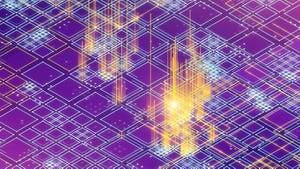Data Center, AI Load Growth Could Threaten Grid Reliability – ReportData Center, AI Load Growth Could Threaten Grid Reliability – Report
Although AI tools could eventually enable more efficient electricity generation and transmission, near-term AI demand could slow the energy transition, according to a new report.
June 21, 2024

Electricity demand from data centers could more than double over the next decade, threatening US grid reliability and increasing operational risks for other businesses, the Conference Board said in a May 30 report.
Due to limited grid and transformer capacity and long permitting and interconnection timelines for new generation and transmission projects, expected data center load growth could slow the pace of the US’ transition to a net-zero electricity system, the report said.
Global energy consumption from data centers, including those devoted to AI and cryptocurrency mining, could jump from 460 TWh in 2022 to more than 1,000 TWh in 2026, according to an International Energy Agency projection cited by Heil and Pollard.
In the United States, data centers’ electricity consumption could double to more than 9% of total U.S. generation by 2030, the Electric Power Research Institute said in May.
Some models expect even more dramatic growth over the next five to six years, said Josh Claman, CEO of Accelsius, a provider of computer chip cooling technology.
High-end predictions for data center energy consumption “sound like hype, but we can’t discount them yet,” Claman said.
Accelsius and competitors like LiquidStack and Marathon Digital Holdings develop direct-to-chip cooling systems that use non-water refrigerants that transition from liquid to vapor to maximize cooling efficiency. Data center operators are quickly realizing that this type of system offers the longest technological runway for AI and high-performance computing applications, Claman said.
Cooling accounts for roughly 40% of data centers’ total energy consumption today, but two-phase liquid chip-cooling systems like Accelsius’s can reduce server racks’ power consumption by 50% or more, and the industry as a whole will become more efficient as more data centers transition from air- to water-based cooling, Claman said.
About the Author
You May Also Like









